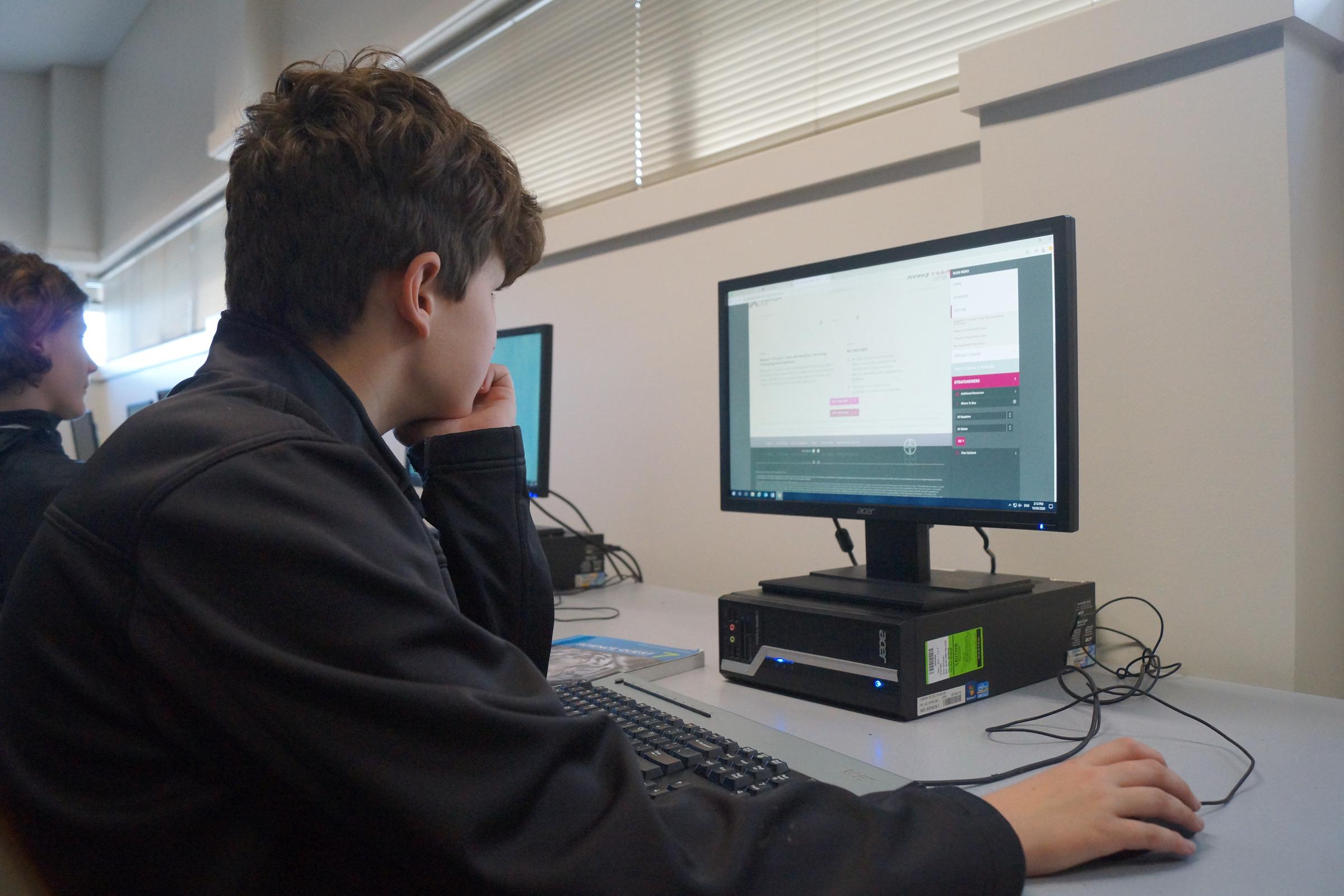National Scams Awareness Week

National Scams Awareness Week: ‘This Is Not Your Life’
What is Scam Awareness Week and why we are doing it?
Last week we celebrated Scam Awareness week which was from 17th August to 21st August. Engaging in these activities provided everyone, especially our students, with the tools and techniques to find out about how scammers use new technology to trick us into giving away information they can use to steal your identity for their own gain and ways we can protect ourselves.
Scamwatch has seen a 55 per cent increase in reports involving loss of personal information this year compared with the same period in 2019, totalling more than 24 000 reports and over $22 million in losses.
This year’s National Scams Awareness Week has over 100 partners from the government, NGO and business sectors working together to raise awareness about scams that steal personal information under the tagline: 'Be yourself. Don’t let a scammer be you'.
“During the COVID-19 pandemic, with more people working and socialising online, we have unfortunately seen a sharp increase in scammers seeking personal information,” ACCC Deputy Chair Delia Rickard said.
“Personal information, such as bank and superannuation details or passwords, are extremely valuable and scammers will try to steal them for their own financial gain. Our increased use of technology has created more opportunities for them to do so.
“Scammers will also try and steal a range of other documents, or the numbers associated with them, including passports, driver licences, credit cards, tax statements, utility bills or Medicare cards, so that they can impersonate you,” Ms Rickard said.
Phishing scams, the most common form of scam, are up by 44 per cent compared with the same time last year. Scammers pretend to be from government departments and businesses, like the ATO, myGov, Telstra or the NBN, to gain bank account details and other information about a person that can be used to impersonate them.
Once a scammer has that information, they can then use it to access individuals' bank accounts or superannuation, take out loans under their names and impersonate them on social media to try to get money from family and friends.
“Scam victims who have lost personal information are vulnerable to further scams, fraud or identity theft,” Ms Rickard said.
“If you do have your identity stolen, it can take years to recover and people can end up losing more than money. Not only time in trying to undo the damage done financially, but it can also impact greatly on your mental health.
“Never give your personal or financial information to anyone you don’t know or trust via email, text, social media or over the phone,” Ms Rickard said.
Background
If you suspect you are a victim of identity theft, contact IDCARE on 1300 432 273. IDCARE is a free government-funded service which will work with you to develop a specific response plan to your situation and support you throughout the process.
If you have been the victim of a scam, contact your bank as soon as possible and contact the platform on which you were scammed to inform them of the circumstances.
More information on scams is available on the Scamwatch website, including how to make a report and where to get help.
What will our students be doing this week?
During Scams Awareness Week, we have planned the following activities each day to make our students stay smart and safe when using online platforms.
Monday: How to Avoid Phishing
This is Not Your Life Podcast, Episode 1 - Phishing Scams
Link: This is Not Your Life: Phishing
From the makers of ABC consumer affairs TV show The Checkout, the This is Not Your Life podcast is the most entertaining way to protect your identity. Students will be listening to episodes of this new podcast series, to find out how scammers use new technology to trick you into giving away information they can use to steal your identity for their own gain and ways you can protect yourself. Check out the Podcast Trailer here.
Tuesday: Tricks of the Criminal Trade are Revealed
Students will be listening to Episode 2 of the This is Not Your Life podcast.
https://omny.fm/shows/this-is-not-your-life/this-is-not-your-life-phishing
Wednesday: Get Smarter with your Data
Watch the YouTube video below on how to act smartly with keeping your online data safe and secure.
Link: https://youtu.be/BL7WJM342Uc
Thursday: Thoughtful Thursday
Read/Listen to the online book titled - The Little Black Book of SCAMS by using this link.
The best way to protect yourself is through awareness and education.
The Little Black Book of Scams is recognised internationally as an important tool for consumers and small businesses to learn about scams including:
- the most common scams to watch out for
- the different ways scammers can contact you
- the tools scammers use to trick you
- the warning signs
- how to protect yourself, and
- where you can find help.
Friday: Can you spot the scam Quiz
Feeling confident? Put your knowledge to the test and take our quiz to check if you can be yourself online or if you would let a scammer be you.
Other types of scams
Visit the website link below to see examples of SCAMs happening during COVID-19 in Australia:
https://www.scamwatch.gov.au/types-of-scams/current-covid-19-coronavirus-scams
Reflection Time: We will ask our students to share one strategy that they have learnt this week on how to use online platforms safely.
For our staff, parents and community members, below is the link to the esafety government website for tips and resources on how to stay safe online and protect yourself, your family and your devices during the COVID-19 pandemic.
https://www.esafety.gov.au/kids/I-want-help-with/being-safe-online
Stay safe online everyone!
Parminder Kaur
Mathematics and Business Teacher

